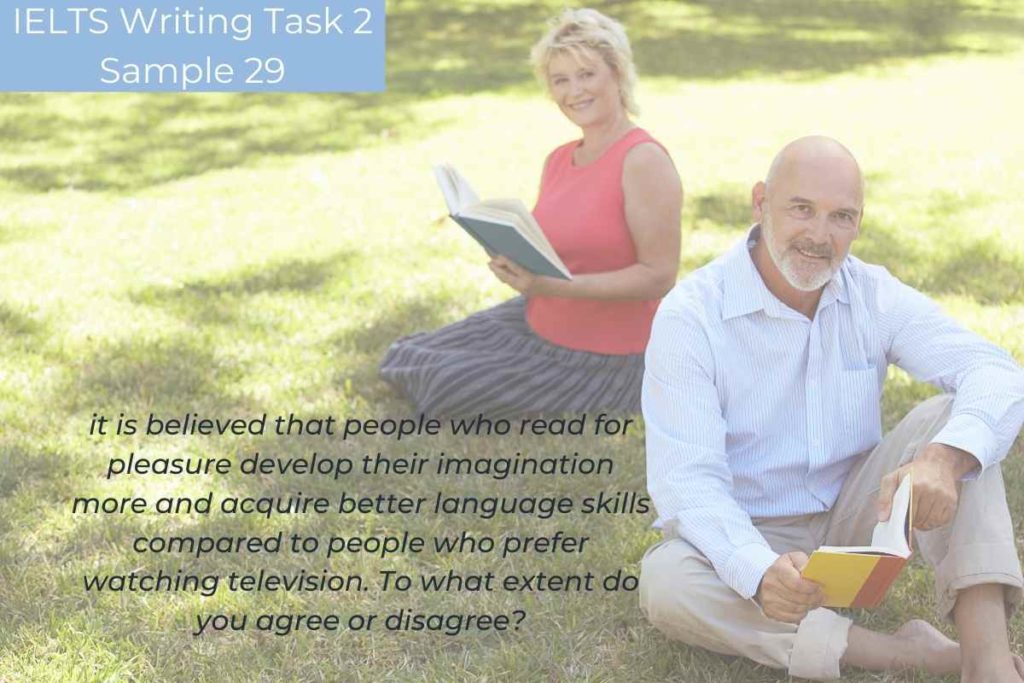IELTS Writing Task 2 – Sample 29 People Who Read ———it is believed that people who read for pleasure develop their imagination more and acquire better language skills compared to people who prefer watching television. To what extent do you agree or disagree?
Sample Answer of IELTS Writing Task 2 – Sample 29 People Who Read
INTRODUCTION
Some individuals think that reading helps in building a higher sense of fascination plus boosts the new language learning skills as contrast to person who love to watch television. I do not completely agree to this as reading makes you fully discover your level of imagination and helps in learning a new language.
PARAGRAPH 1
When its comes, Specially for the people who read for pleasure they fully drown in reading. They don’t really care about what’s going around them, as it helps them to focus more on what they are reading. In this way, they can start imagining the context of the book and can develop new language skills like new vocabulary. For example, when people start reading any book or novel, they also start creating the scene of what they are reading in the book and the same time they found lots of new words that really helps them increase their knowledge about that language. Hence, reading always helps us to develop our level of curiosity as well as learning new dialects.
PARAGRAPH 2
On the other hand, Humans who watched Television have greater sense of fascination and strong grip on language also. While watching any movie or event on television people can easily develop their imagination as sometimes the movies are beyond our imaginations. Along with this people not only can learn lots of new words but also will learn their correct pronunciation. For instance, In a recent survey in daily mail, people who watched movies of different countries are more likely to develop their fancy and learn new words as compared to others. Thus, television is also a great source of acquiring high level imagination and vocal skills.
CONCLUSION
To sum up, It depends on people what they like to do, either reading or watching television, both of which help humans to acquire a higher level of curiosity along with superior language ability.

